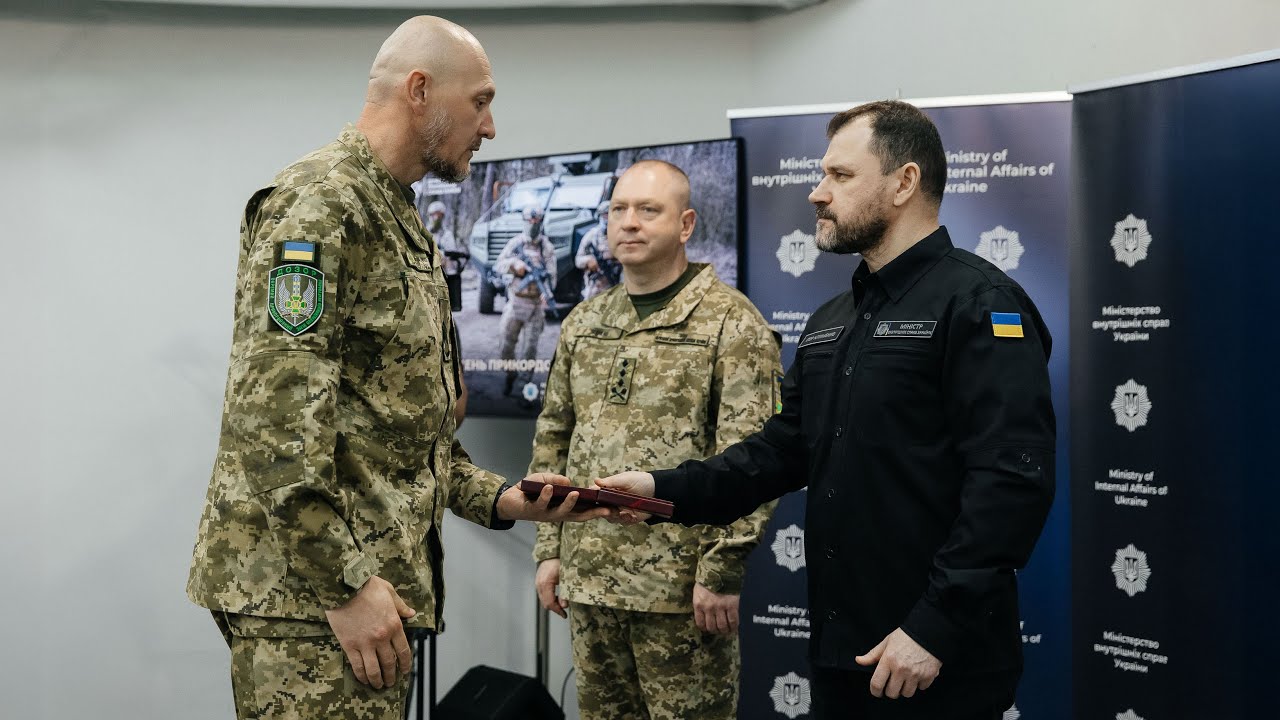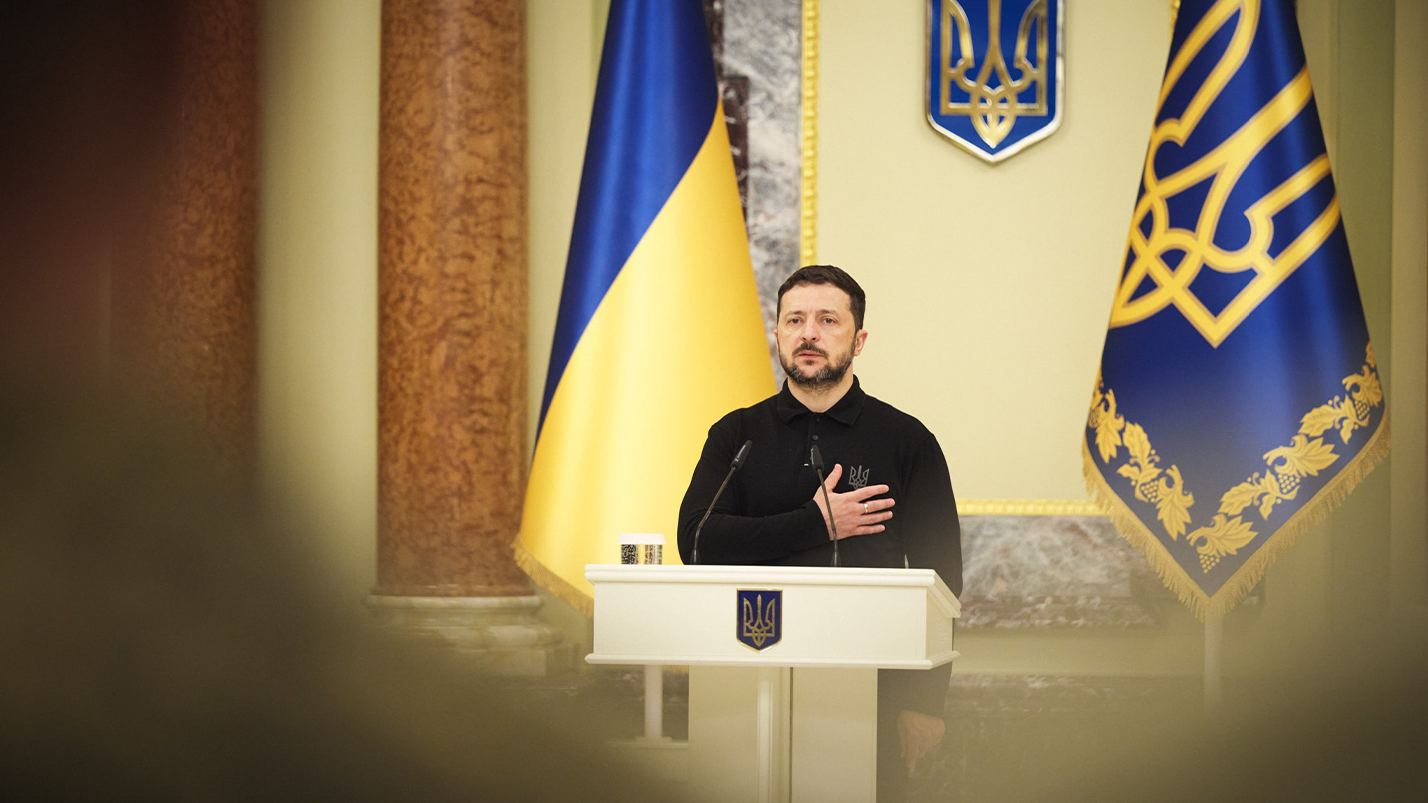Igor Klymenko about the Guard of Offensive and the training of personnel of the unit “Azov”

In an interview with the UP, Minister of Internal Affairs of Ukraine Igor Klymenko talks about the work of the Offensive Guard, recalls conversations with the dismissed Azovstal defenders, explains what Denis Prokopenko is currently busy with.
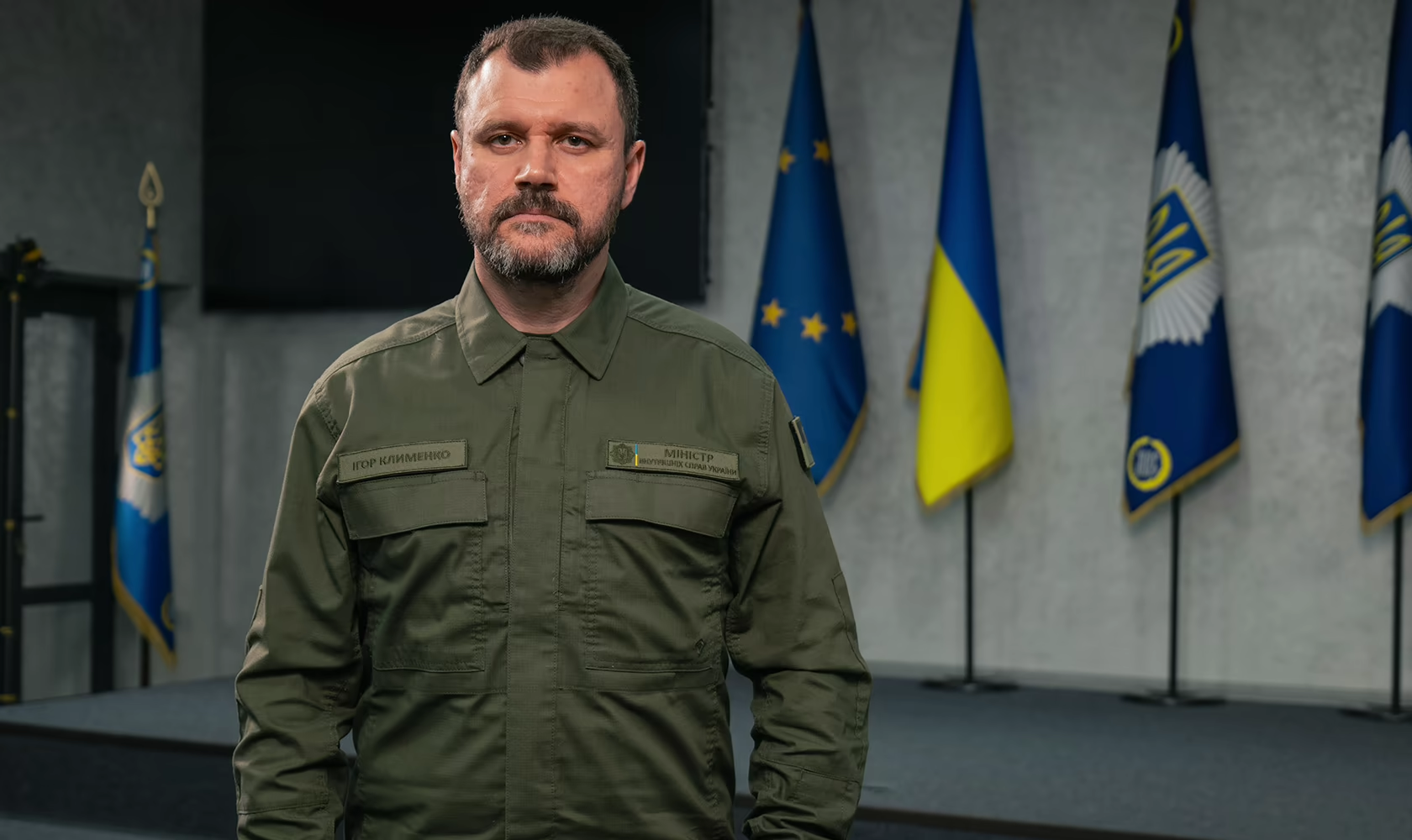
“Prokopenko is fully integrated into Azov
Let's start with the advance guard. During the spring and summer of 2023, new units of the Offensive Guard were formed under the Ministry of Internal Affairs. How did they manifest themselves during the fighting?
— Since February, we have formed eight brigades: six in the National Guard, one in the National Police and another in the Border Service.
These units were transferred to the subordination of the Armed Forces of Ukraine and commanders in the field.
The units are 100% formed, provided, as far as possible at that time, with equipment, weapons, ammunition.
Unfortunately, there are losses in people.
— If you compare with the brigades of the Armed Forces of Ukraine, what kind of support do you have?
— I do not know exactly what kind of security is in the Armed Forces. But I will tell you a little about the provision of our units.
The intensity of the attacking or defensive actions of the enemy is very strong. This requires an appropriate amount of ammunition and equipment.
In terms of armored vehicles, we originally had Soviet or manufactured countries of the former Warsaw Pact.
And then we began to receive equipment both American and German, and Canadian-made, and French.
Who distributes equipment and weapons? The Department of Defense determines which unit needs what?
— As a rule, we ourselves submit applications to international partners, but also through the Ministry of Defense we can purchase this or that equipment.
It all depends, of course, on the budget of the Ministry of Internal Affairs.
— According to information on the website of the Offensive Guard, the unit “Azov” is headed by Bohdan Krotevych, one of the defenders at Azovstal. How does he present himself on the battlefield now?
— Unit “Azov” is headed by Denis Prokopenko. Krotevic is the chief of staff of this unit.
— That is, Prokopenko is already fully in charge of the unit?
— Prokopenko is responsible for the preparation of personnel.
It is fully integrated into the process. Enters the course of affairs, makes up for the time before it was there.
“Azovstal defenders lived in a closed area designated by the Turkish government”
— Can you tell us how we managed to return the leadership of the defenders of “Azovstal”? You were a member of the Ukrainian delegation in Turkey in July this year.
I would not like to comment on the political component of these agreements. These details can be told by the President of Ukraine and the head of the OPU, who directly participated in the most important negotiations.
I connected at the last stage and was responsible for ensuring that the boys were safely delivered to our state.
We talked to them before, when they were still in Turkey. They were very torn to their homeland. The guys wanted to defend our state, said that they should be on guard for those who remained in captivity, and about the desire to avenge the dead.
— In what conditions were the boys in Turkey?
— They were in a closed area designated by the Turkish government.
Was it a SIZO?
— No, it was something like a special settlement.
Were they under surveillance all the time?
Under the supervision of the Turkish authorities. There were clear restrictions on staying in that territory.
Even relatives and relatives could not always come. I would even say that in most cases they could not come to the guys. There were restrictions on the use of the Internet, instead there was Turkish television (smiles).
That is, the conditions that were set by the Turkish side were quite rigidly fulfilled.
Did the guys get treatment there?
— Our doctors came to Turkey for examination. So yes, they had some treatment there.
- You returned with the president and the defenders of “Azovstal” in the same plane. What did the guys say?
— They told how they were in captivity, how they were treated, what were the demands of the Russians for them. First they were in one SIZO, then they were transferred to another detention center. They talked about how they were fed, that they tried to find out during interrogations, and so on.
Then they talked about Turkey, for them there were also quite difficult months, although the conditions were acceptable for human habitation, this is not a detention center in Moscow.
It was difficult for them because they are young 30-year-olds who are used to acting.
The day before returning, I came and talked with them objectively. We talked about everything. They discussed the whole life, then what equipment is now in use, what equipment they need. We discussed all combat issues.
And the guys had one request. They previously studied in absentia in higher education institutions. And they asked if they could be renewed in absentia.
— Renewed?
Of course (smiles).
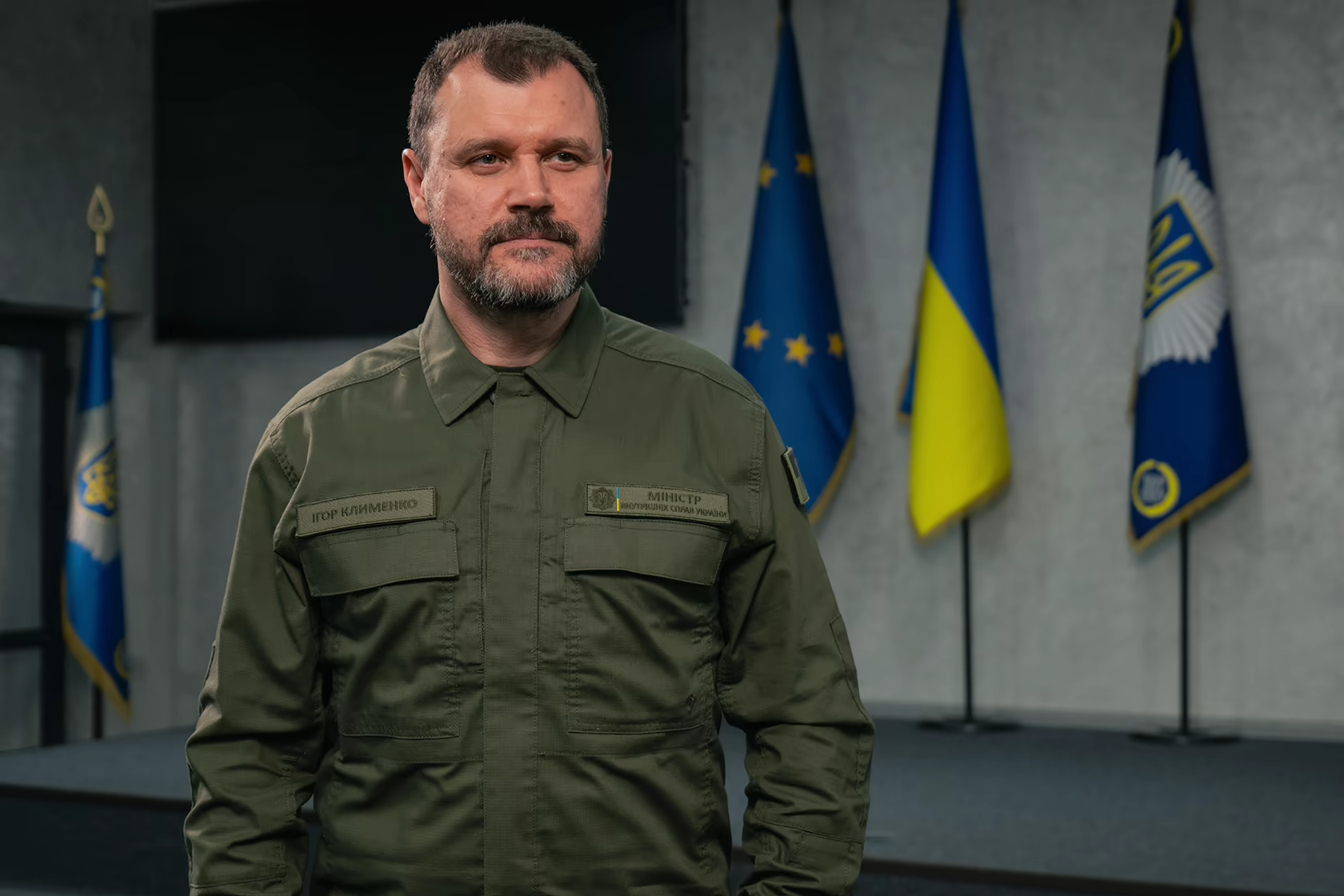
“There are very tough conversations at the pond”
Let's go back to the advance guard. It is known that on the battlefield your units are under the command of the Armed Forces of Ukraine. Wondering how you coordinate with the General Staff? Perhaps you have separate meetings with General Zaluzhny?
— We have one meeting held by the Supreme Commander-in-Chief of the Armed Forces of Ukraine — this is Stavka. There they solve all issues.
— We know about the existence of the Staka from the official addresses of the president. What really happens behind closed doors? What is the format of the Bets?
— The President gathers at a designated place the members of the Bid. We listen to commanders on the ground, on the fighting that is taking place, about our positions, what tasks are planned for the near future.
The President will also listen to the issue of logistics and combat support.
All issues that are relevant are discussed there. For example, after the Russians start shelling us en masse, we understand where our mistakes are, where our strengths are.
Commanders of various kinds of troops can be invited for reports.
Sometimes there is quite a tough conversation, because all the people are military and we are in a state of war.
And in order to understand what is happening on the front line, the president needs to hear it all.
As a rule, at the end of each Bet on the same day, the Supreme Commander's Bet order is issued, where each member of the Bet receives the corresponding task.
— Do I understand correctly that, in addition to the reports, you also discuss the planning of operations?
No, there is still a military office for that.
Immediately before the planning itself, the president determines who will be in this cabinet.
I am not involved in planning operations, it is the prerogative of the military.
- Then what are they arguing about at the stake?
For example, problems with mobilization.
At Stavka, the issues of activities of regional military commies were initially considered. And after the stake, the president decided to hold a meeting of the National Security Council in order to put an end to the complaints and abuses that were on the part of the military commissions.
He receives a team from Malyuk, and Klimenko, and the head of the State Bureau of Investigation, and the Office of the Prosecutor General so that we can jointly solve this or that issue.
Have there been any plans, such as when the war might end?
- (Harsh) I'm not going to talk about it. The Betting Meeting is a closed meeting and this information is closed.
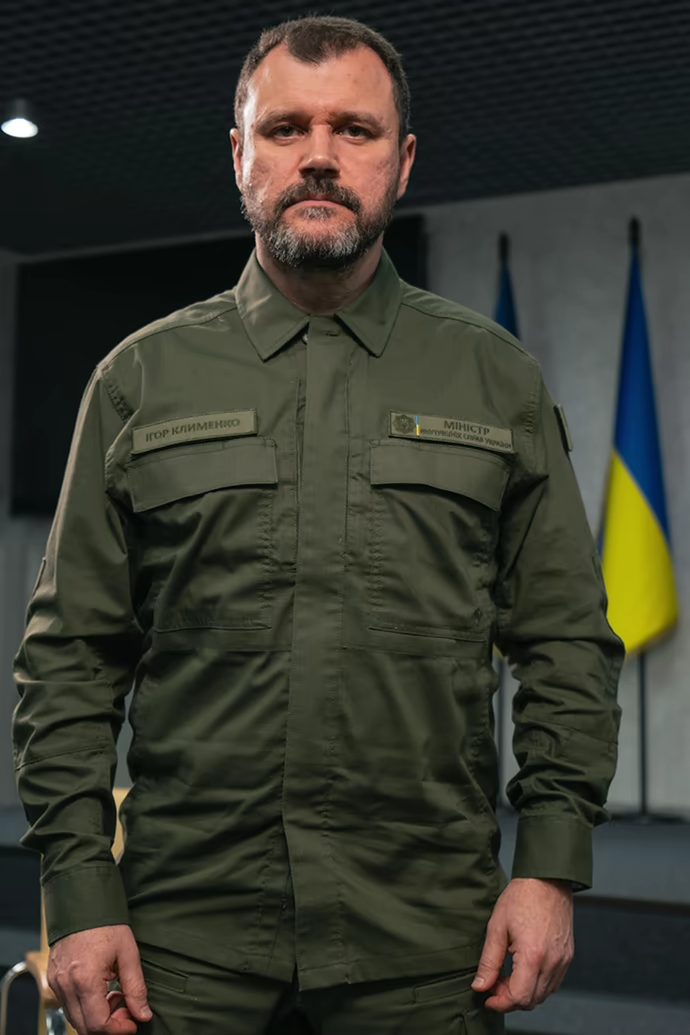
“According to his functionality, Tatarov coordinates the work of law enforcement agencies”
— How would you describe today's influence of the deputy head of OPU Oleg Tatarov on the law enforcement system in Ukraine?
— I can describe his influence on the Ministry of Internal Affairs. There is no influence.
No official in the Ministry of Internal Affairs is appointed at the request of Tatarov. Oleg Yurievich never even asked about this issue.
Because he already had people here? For example, the first deputy head of the National Police Maxim Tsutkiridze, who is called the Kuma of Oleg Tatarov...
— Look, with Maxim Sergeevich we have been working with the National Police for a long time.
We were acquainted with him when I was not even a deputy head of the National Police, and Maxim Sergeevich worked at the Academy of Internal Affairs.
That is, few people with whom can be in any relationship. But I evaluate this person solely on professional qualities.
— According to the UP, Tatarov has influence on the head of the National Police Ivan Vyhivsky. What will you say about this?
— Complete nonsense. Ivan Vyhivsky was in the position of the head of the investigative department in the Nikolaev area. And that was one of my first appointments. When I became the head of the National Police, Ivan Mikhailovich was appointed as the head of the GUNP in the Poltava region.
After the Poltava region, I appointed him, this is already under Denis Monastyrsky, to the post of head of the GUNP in Kiev.
And I recommended that he be appointed head of the National Police.
— How often does Tatarov call you? In the Office of the President, he is responsible for the activities of law enforcement officers and you are forced to talk to the deputy head of the OPU?
— Not only that it is forced, but in terms of functionality it coordinates our work. I emphasize: coordinates, not gives orders. He does not interfere with the work of the body.
Coordinates in what? For example, there is a joint task for the military commissars, the heads of the TCC (territorial recruitment centers — UPs).
And in this case, the Security Service, the Ministry of Internal Affairs, the State Bureau of Investigation should understand and exchange information - in the matter of communication and the deputy head of the OPU is involved.
Because, for example, the investigation can be in the police, and operational support - in the Security Service of Ukraine. We share our responsibilities so that all of Ukraine is covered by this work.
— But where does the representative of the OPU have such powers — to coordinate the Ministry of Internal Affairs, SBU, SBI?
— The office of the president has taken over the lion's share of the coordination of what is happening in the country. Why? Because providing weapons, equipment and ammunition is an extremely difficult thing, believe me.
In a state of war, there must be coordination. And this is absolutely normal, because the entire vertical of power must work as a single organism.
As an example, I will cite Kakhovka, where I was the head of disaster relief work. Every day on the ground: the head of the military administration, myself as the head of liquidation, the chief of staff, the head of the State Emergency Service and all other services.
In order to collect silt or connect something, the help of a central authority is required. Therefore, we connect with the Prime Minister, who gives orders at the ministerial level.
On the other hand, the Deputy Head of the Office coordinates the work in general by region.
That is, I could call, for example, Deputy Head of the Office Alexei Kulebi and say that I need such and such equipment from such areas. And he's already done that. That is, there is a common misfortune and there is a common problem.
“There are people who specifically provoke police for the sake of likes”
— Why are there so many complaints lately that the police are becoming the same police as they were before? For example, in social networks, people regularly post videos with examples of police rudeness. Why is this happening?
— The Department of Communications, the Department of Internal Security, the Main Inspectorate monitor the information that is on the Internet.
We see that some of the people who write this are abroad, and often the publications are custom-made.
And there are people who hype this and try to earn more likes when they specifically provoke police officers on the road or provoke in the course of duty.
On our part, quite tough measures are being taken.
But also our people must learn, if anyone has not yet learned, to obey the legal requirements of representatives of the authorities, including the police.
Otherwise, we will not maintain order in the country.
The fact is that the police today, together with other law enforcement agencies, have kept a criminogenic situation, and our crime rate is now much lower than it was before February 24, 2022.
— Why did this happen?
— Due to systematic actions, starting from the first day of the war.
Organized criminal groups were dispersed and some of them went abroad. Now, together with our European colleagues, we are exchanging information on their whereabouts and on their actions.
We have increased the number of patrols. And I want to say that the police are tired of standing on the streets. If a policeman used to have a day to work and at least two days to rest, today the regime is much tougher.
When cold weather sets in and, God forbid, if we can have power outages, we actually take 100% of the staff outside. This applies to the National Guard, the State Emergency Service, and, of course, the police.
And no one removes the functions of solving crimes.
When a full-scale war began, few people remained in Kiev, and the police remained almost 100%. And we divided the capital, like all other cities, into squares.
In Kiev, there were initially 80, then 100. We fully controlled the situation, including to prevent looting.
We immediately guarded both shops and pharmacies, and began to work with the heads of housing estates or condominiums. Our task forces were in the basements of the houses.
Therefore, to this day, we manage to keep the situation criminogenic.
— Allow another question about the curfew. The logic of the curfew in the first months of a full-scale war is clear. But is there now a logic to the curfew in the rear regions?
— Discipline should be in the rear regions.
Just for the sake of discipline?
— And crime prevention. At this time, for example, four, five or six hours — each area has its own curfew — we clearly know that if a person is on the street, we have a legitimate reason to check them.
As you understand, at this time there is practically no crime, it is minimized.
— I can't help but ask you about the fatal incident in Dnipro. At the end of the summer, police shot and killed an intoxicated man who aggressively resisted an arrest attempt. Enough time has passed. Can you comment on those events in more detail?
— I will not comment from a procedural point of view, because this is dealt with by the relevant units of the State Bureau of Investigation.
We gave them all the information, including recordings from body cameras, and recordings from CCTV cameras. So they have a conclusion to draw.
At the same time, I repeat that any legal requirement of a representative of the authorities must be fulfilled by citizens.
As for the professionalism of the actions of our employees, this will be concluded by the investigation.
As for our findings within the system, we have radically revised the algorithm of service and response of our police officers.
This is a separate topic for conversation, but primarily it concerns the patrol police who are on the street around the clock and our special purpose units who help to maintain order on the street.
And the places of deployment, and the places of service, and the mode of service, and the response to such situations - we will review all this.
A lot of people are now, including, on the streets with weapons, with ammunition, with grenades. Therefore, there should be a single algorithm for how to act, for all police officers.




